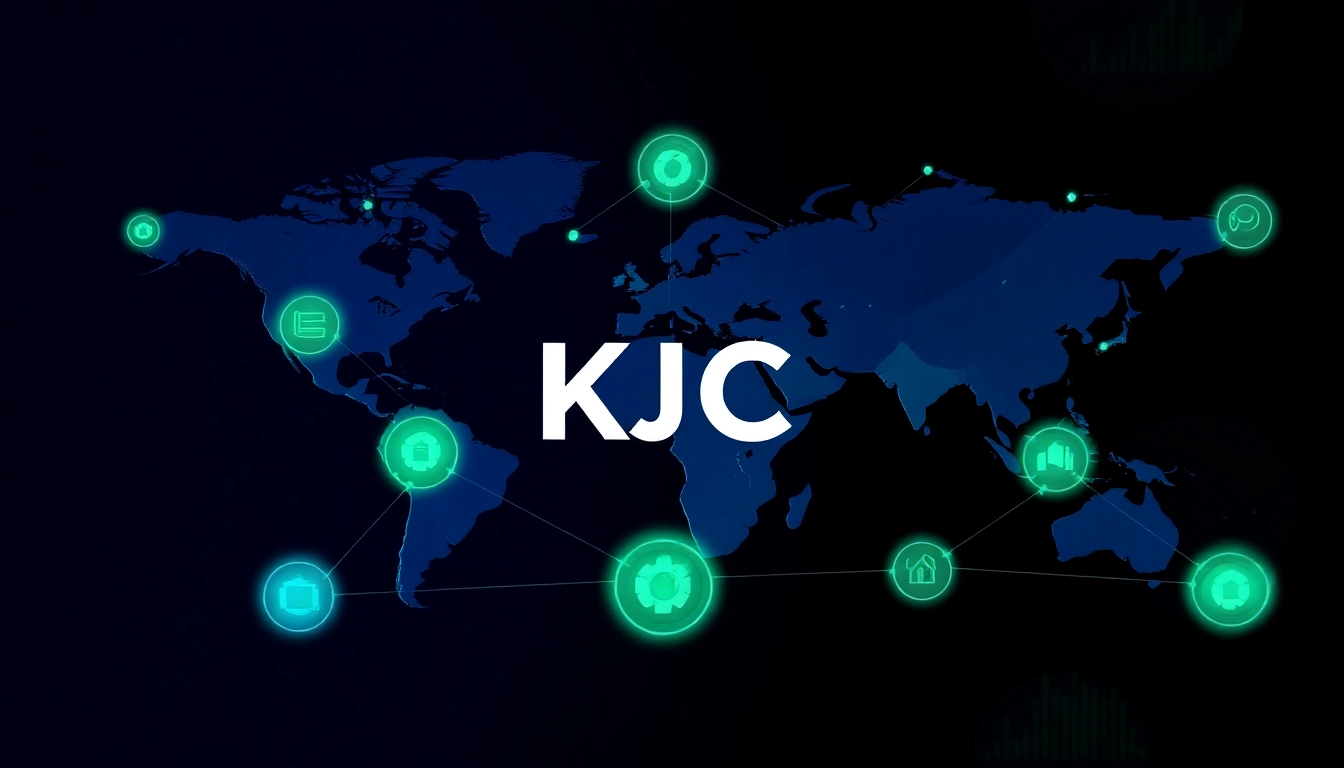Understanding Technology: A Comprehensive Overview
Definition and Scope of Technology
Technology is often defined as technology being “the science of the application of knowledge to practical purposes.” This definition points towards the application of scientific knowledge in real-world scenarios, providing multifaceted benefits across various sectors. The scope of technology is vast, encompassing everything from simple tools used by early humans to complex algorithms that power today’s artificial intelligence and machine learning systems. It is essential to recognize that technology isn’t merely defined by the latest gadget but includes processes, methodologies, and systems that enhance human capability and efficiency.
Historical Context of Technological Advances
The history of technology can be traced back to ancient civilizations, where the invention of simple tools marked the beginning of human advancement. From the wheel and the plow in agriculture to the invention of the printing press in the 15th century, each technological leap has had significant social and economic implications. The Industrial Revolution marked one of the most transformative periods in history, where massive shifts in labor and production arose due to steam engines and mechanization. The digital revolution, culminating in the late 20th century, heralded the age of computers and the internet, fundamentally altering how we communicate, work, and live.
Types of Technology in Today’s Society
Today’s society is influenced by various types of technology, including but not limited to:
- Information Technology (IT): Encompasses computer systems, networking, and data storage, enabling the management of information.
- Biotechnology: Combines biological and technological processes to develop products such as medical therapeutics, genetically modified organisms, and diagnostic devices.
- Green Technology: Focuses on environmental sustainability through renewable energy sources, such as solar and wind energy.
- Nanotechnology: Involves manipulating matter at the molecular level to create new materials and devices.
- Artificial Intelligence (AI): Simulates human intelligence in machines to perform tasks and make decisions, enhancing efficiency across industries.
The Impact of Technology on Daily Life
Transforming Communication and Interaction
Technology has revolutionized how we communicate and interact with one another. Social media platforms like Facebook, Twitter, and Instagram have created new channels for personal and professional networking, allowing users to connect globally. Instant messaging and video conferencing tools like WhatsApp and Zoom have further bridged geographical barriers, making it easier to maintain relationships and collaborate across distances. This unprecedented connectivity has transformed traditional modes of interaction, leading to both positive outcomes—such as increased collaboration—and challenges, such as struggles with digital privacy and reducing face-to-face communication.
Technological Influence on Education and Learning
The landscape of education has been dramatically altered by technology, enabling innovative learning methodologies and access to information. Online learning platforms like Coursera and Khan Academy have democratized education by offering courses from renowned institutions to students worldwide, irrespective of their financial or geographical constraints. Interactive learning through multimedia applications, virtual classrooms, and collaborative tools enhances engagement, enabling personalized learning experiences. However, the rapid technological shift also highlights the necessity for educators to adapt teaching methods and for students to develop digital literacy skills to maximize their learning potential.
How Technology Enhances Convenience in Home Life
In our daily lives, technology simplifies tasks and enhances convenience through smart devices and home automation systems. Products like smart thermostats, voice-activated assistants, and home security systems automate household activities, allowing homeowners to manage their environments effortlessly. The Internet of Things (IoT) has made it possible for appliances to communicate and optimize energy consumption, contributing to comfort and sustainability. However, this reliance on technology also raises considerations related to security and privacy, as interconnected devices can become vulnerable to cyber threats.
Current Trends in Technology: What You Need to Know
Emerging Technologies to Watch
As we move forward, several emerging technologies hold significant promise for transforming various sectors. Technologies such as blockchain are disrupting financial transactions by providing decentralized and secure systems, while advances in 5G networks boost data transfer capabilities, enabling innovations in areas like telemedicine and autonomous vehicles. Furthermore, quantum computing is poised to change computing capabilities dramatically, pushing the boundaries of data processing and complex problem-solving that traditional computers cannot achieve.
Artificial Intelligence and Machine Learning Innovations
AI and machine learning are at the forefront of current technological advancements. Companies are using AI to analyze large datasets for insights, automate routine tasks, and enhance decision-making processes. Innovations like natural language processing (NLP) are improving human-machine interactions, paving the way for applications in customer service, healthcare, and beyond. Moreover, ethical considerations around AI’s impact on employment and data privacy remain key discussion points as technology continues to evolve rapidly.
Advances in Renewable Energy Technology
The push for sustainability has led to significant advancements in renewable energy technologies. Innovations in solar and wind energy systems have made clean energy sources more efficient and accessible. Battery technology is improving, supporting better energy storage solutions that complement renewable sources. As climate change catalysts, these technologies play pivotal roles in reducing carbon footprints and steering societies towards sustainable practices. Government incentives and policy support further drive these technologies’ adoption, underscoring the intertwining of technological progress with environmental stewardship.
Challenges Associated with Technology Implementation
Security Risks in a Digitized World
With the increasing digitization of personal and business interactions, security risks have surfaced as significant concerns. Cyberattacks, data breaches, and identity theft represent growing threats that can undermine consumer trust. Companies face the challenge of safeguarding sensitive information while ensuring compliance with various regulations, such as GDPR and CCPA. Implementing robust cybersecurity measures, educating employees on best practices, and developing incident response plans are essential steps in mitigating these risks. Organizations also benefit from investing in the latest encryption technologies and multi-factor authentication systems to protect data integrity.
The Ethical Implications of Technology Use
The advancement of technology brings forth ethical dilemmas, particularly regarding surveillance, data privacy, and autonomy. As data collection practices grow more pervasive, individuals express concerns about their digital footprints and the implications for personal privacy. Ethical technology use necessitates responsible policies that respect user rights and foster transparency in how organizations utilize data. Considerations such as bias in algorithmic decision-making further emphasize the importance of developing technologies that prioritize fairness and inclusivity. Engaging in discussions that address these dilemmas is vital for building a technology-driven society that adheres to ethical principles.
Bridging the Digital Divide: Accessibility Issues
The digital divide—a disparity in access to technology—exacerbates existing socio-economic inequalities. Many individuals, particularly in rural or underserved regions, lack access to reliable internet services and digital devices, hindering their ability to participate fully in the digital age. Bridging this gap requires concerted efforts from governments, private sector stakeholders, and non-profit organizations to invest in infrastructure, provide affordable technology, and promote digital literacy programs. Ensuring equitable access to technology is essential not only for individual empowerment but also for fostering inclusive economic growth.
Future of Technology: Predictions and Insights
Speculating on the Next Decade of Tech Developments
As we look to the future, several predictions emerge regarding technological advancements. The next decade is likely to be characterized by a stronger emphasis on AI integration across sectors, abandoning traditionally slow processes in favor of data-driven real-time solutions. Furthermore, advancements in biotechnology may lead to significant progress in personalized medicine, allowing healthcare to tailor treatments to individual genetic profiles. With concerns about sustainability also driving technological innovation, we may see breakthroughs in energy storage solutions and carbon capture technologies that facilitate a greener future.
Role of Government Regulations in Tech Progress
Government regulations will continue to play a crucial role in shaping the direction and impact of technology. As new innovations emerge, policymakers must adapt legal frameworks to ensure that technological advancement aligns with societal values and public safety. Regulations on data privacy, cybersecurity, and ethical AI use will gain prominence, demanding a collaborative effort between technical experts and policymakers. By balancing innovation with accountability, governments can cultivate a healthy ecosystem that promotes both entrepreneurship and consumer protection.
Technological Solutions for Global Challenges
Technology holds the potential to address urgent global challenges, such as climate change, food insecurity, and public health crises. Innovations in agricultural technology, for example, can enhance food production efficiency through precision farming methods and smart water management systems. Similarly, advancements in telemedicine are transforming healthcare delivery by making services more accessible, especially in remote areas. By embracing solutions that leverage technology for social impact, businesses and governments can work collaboratively to build a sustainable and equitable future for all.



